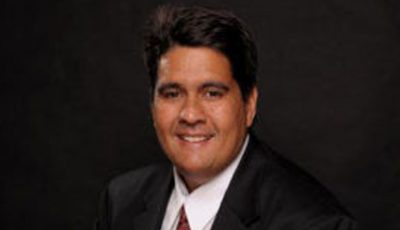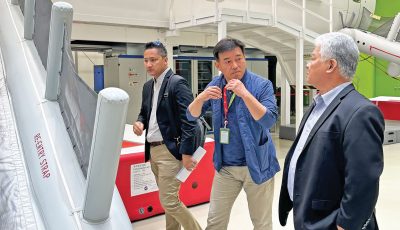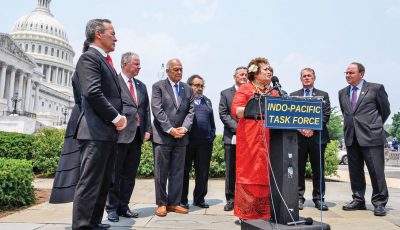Chow and choice at Central
It was 1974 in Hong Kong when a colleague showed me her business making votive candles for Hallmark. I expected a storefront shop with a couple of employees. I was shown instead a highly mechanized production and the operation made her family afford a 20-story building when Aberdeen was just a fishing village. They also lived in a compound on exclusive Pok Fu Lam Rd. It did not hurt that her father traded the candle-making ingredients in fireworks and armaments.
She was the eldest in the family who attended college in Regina, Saskatchewan, cut short when her father died. She wanted the best for her family. She wanted to bring assets out of HK as China began talking about its return to Beijing’s administration. I met her in the Philippines on a trip to scout possible investment in real estate. She had no qualms about China. In fact, she had the classical “round face” of the Tang Dynasty, and the full body to go with it! In ’74, she did not wish to entrust her finances with Beijing!
I came through Kowloon nine years earlier on my voyage to San Francisco as a student bound for the U.S. via Kobe, Yokohama, Honolulu before going under the Golden Gate. I remember being asked when I was 8, after I opened a Postal Savings Bank account that had my deposits equaled by mother, what I would do with the money. I answered, “I will take a trip to China.” I was 20 when I made the trip to Hong Kong. The image of the coolie-drawn rickshaw and the deceptively rowdy but well-orchestrated sidewalk chow mien noodle shops at night were China enough to me.
In 1989, I finally visited the mainland, hitting Beijing’s Tiananmen Square and its Forbidden City shortly after the June workers’ uprising, saw Qin Shi Huangdi’s terra cotta army in Xi’an, walked the Bund looking abandoned and dilapidated in Shanghai with Huangpu overcrowded and the French Quarters neglected, to the well-tended gardens in Suzhou and the tranquil West Lake of Hangzhou. It was an experience traversing China by air and rail when Deng Xiao Peng and China went into reform and was opening up in earnest.
I was in and out of HK in the ’70s and early ’80s, then in and out of the mainland since ’89 to the present. Thus it came as a parochial view to read the online edition of Time Magazine quoting David Shambaugh of George Washington U’s China program as telling the New York Times that China was going through its most repressive period in 25 years, the years covering my first visit to Beijing to the present.
I was a resident of Washington, D.C. within the beltway on the Virginia side half of the ’90s, being Mr. Mom while married to an officer of the State Department. Shambaugh directs the GWU China program so he presumably gets his materials from the CIA. “Repressive” is par for the course!
The prominence of Alex Chow in Occupy Central in Hong Kong hinges on the perception of “choice” in the nomination process of HK’s projected universal suffrage of 2017. The group Occupy Central has annual marches through the financial district of HK, and this year Alex, the newly elected chair of the Federation of Students in HK, went off script. After the march, locked arm-in-arm with fellow students, he led a sit-down on the main traffic of the Central District chanting, “Our government, our choice.”
With China’s national week starting Oct, 1, Occupy Central for Peace and Democracy, et al, including a Baptist minister, planned a rally but 17-year-old Joshua Wong of Scholarism led the protest on Sept. 28, and everyone who had any gripes in HK tagged along. The rally tapped into the anticipated weeklong vacation, and before he could light the fireworks, HK’s XO was asked to step down.
The “choice” at Central in HK knows what it is against but unclear of what it is for. For many students who had been taught imaginal rather than actual democracy, it is being against China. Vested interests in the West fanned the flames of protest as a matter of reflex action, involving U.S. policy that moved less inclusive but assertive of the claimed prerogatives of “American exceptionalism” since Jimmy Carter.
U.S. “meddling,” a claimed prerogative of the self-appointed world police, fomented the Arab Spring, and now, Occupy Central in HK. It quickly lent its support to Occupy Central.
Deng Xiaoping did Meg Thatcher one better when he came up with the formula of “one country, two systems.” In his reform and opening up, he allowed choices in economics as long as the political structure is left alone. It worked in China and he meant to go further with it in HK.
I am not one to condemn the US of A as malevolent. After all, a country that elected a “black” President cannot be all that bad. But I know that less than a third of registered voters vote, and occupy Main and Elm, ironically and hypocritically condemned in the U.S. by virtually everyone, is the U.S.’ darling in Occupy Central HK.
Choice, not ideology, but the practice thereof, is the democratic call of the times.



























